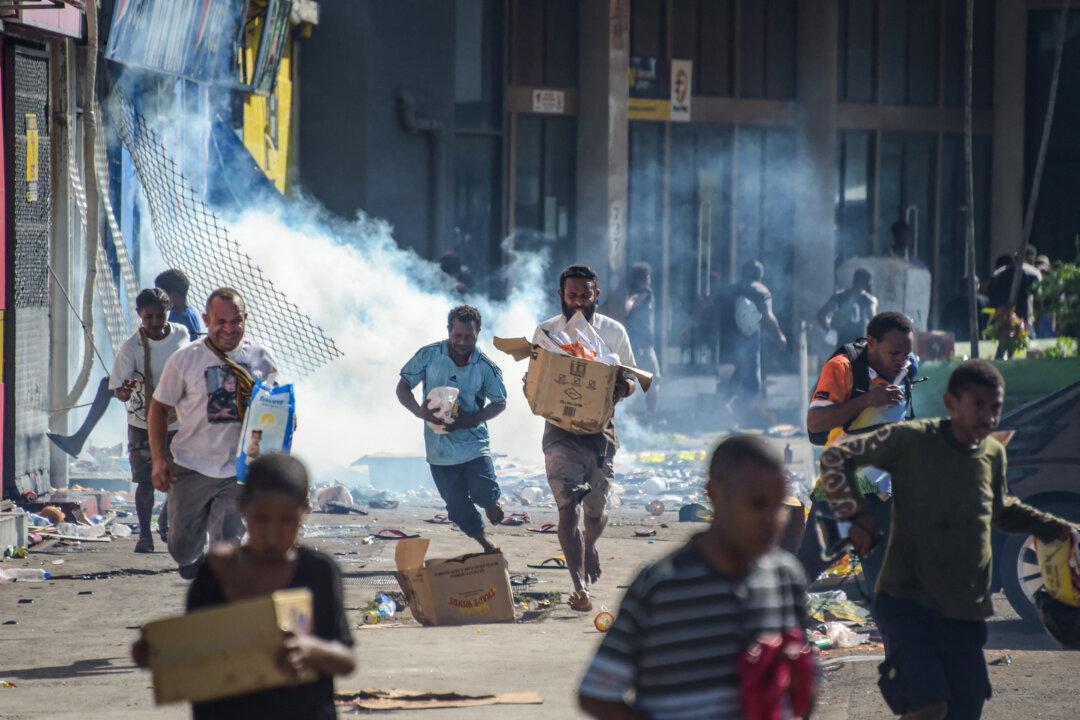A violent day of riots and looting on Jan. 10 in the capital of Papua New Guinea (PNG), Port Moresby, and the country’s second-largest city, Lae, has left at least 15 people dead.
The unrest was sparked by local civil servants, including police and military personnel, going on strike over a pay dispute.





